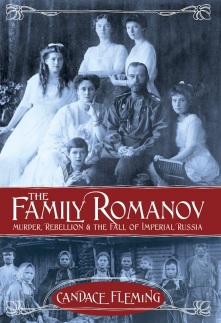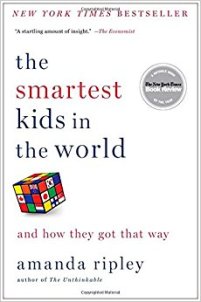 Surrounding the mystery of the shooting of the last Romanovs, this book delves into the personal and political background of the Czar Nicholas II’s family’s murder in 1918, and beyond. Written almost like a diary with daily entries of important events, Fleming follows the daily life of the Russian royal family, their activities, interests, personalities, and problems, using multiple sources including people who actually worked for them. In addition to a description of the pivotal events of the Russian Revolutions of 1917, the major social causes are documented, showing the desperate situation of the peasants and city workers in imperial Russia, as well as the disastrous involvement in the Great War. Even to this day, scholars continue to figure out what happened to the last Romanov family, but this book brings some sense of closure to their case.
Surrounding the mystery of the shooting of the last Romanovs, this book delves into the personal and political background of the Czar Nicholas II’s family’s murder in 1918, and beyond. Written almost like a diary with daily entries of important events, Fleming follows the daily life of the Russian royal family, their activities, interests, personalities, and problems, using multiple sources including people who actually worked for them. In addition to a description of the pivotal events of the Russian Revolutions of 1917, the major social causes are documented, showing the desperate situation of the peasants and city workers in imperial Russia, as well as the disastrous involvement in the Great War. Even to this day, scholars continue to figure out what happened to the last Romanov family, but this book brings some sense of closure to their case.
I would recommend this book to anyone who enjoys a great historical mystery, and a detailed description of the Russian Revolutions and seeks a greater knowledge of the Romanov family, as this book only covers a few years in depth, including many images. It is quite helpful in understanding what happened and why. I was quite surprised how the author was able to paint a detailed picture of the shooting, even explaining who died when and where, showing the collaboration with forensic scientists. This book is actually quite an easy read because of its story- and journal-like structure, so there is no need for a degree in history to comprehend the language used in this book.
Paul rates this book 5/5

 Written by a bestseller journalist who embarks on a trip around the world, this book explores different viewpoints countries have on education. Centered around three American exchange students to Finland, South Korea and Poland, some of the highest performing nations on the Programme for International Student Assessment (PISA) test, Ripley follows these students and does some research of her own to understand why these rising (or risen) countries have been so successful in comparison to the United States. Furthermore, she delves into the driving factors and effects of the current system on the students and the society as a whole, as well as the lesson that we can take away from each other.
Written by a bestseller journalist who embarks on a trip around the world, this book explores different viewpoints countries have on education. Centered around three American exchange students to Finland, South Korea and Poland, some of the highest performing nations on the Programme for International Student Assessment (PISA) test, Ripley follows these students and does some research of her own to understand why these rising (or risen) countries have been so successful in comparison to the United States. Furthermore, she delves into the driving factors and effects of the current system on the students and the society as a whole, as well as the lesson that we can take away from each other.